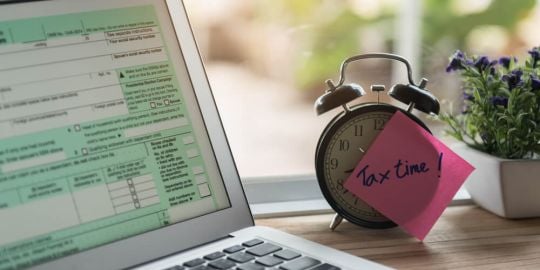Hello everyone,
Living in Nepal means learning new ways of doing things and incorporating to your daily life unique practices.
We invite you to share unique practices, tools or methods that could also make a difference in other countries.
For instance, have you recently discovered new rules or habits regarding transportation, the environment or health in Nepal? Are there innovative and useful practices or services that make daily life simpler?
Thank you for your contribution.
Priscilla
Best usages and practices in Nepal
I thought that I would respond to Priscilla's call to contributors who may have learned new ways of doing things, discovered new habits relevant to the environment and health in Nepal.
First, let me say that what really prompted me to do so, is an email I just received from a close friend of mine informing me, he says, of the ever increasing amount of air pollution in Kathmandu due at least this time, in good part to a new program for the construction and laying down and installation there of 1000 kms of water pipes for drinking water. This is all news to me, as I am now abroad.
In response, I would strongly urge everyone - particularly those who live and work in Nepal's highly polluted urban areas - Kathmandu no doubt being the worst of them (see rankings below) - to at least be aware of the fact that NOT all AIR POLLUTION MASKS are effective against pollution. It is a well known fact that masks have to fit securely, one has to ensure the material they are made from can filter out dangerous to your health so called nano particles, and must be well ventilated notably with a built-in respirator. Those who wish to have more information can surf the web for more complete data. The point is to try and protect yourself and your children - and our lungs - against these dangerous to your health, harmful/pollutant particles. I remember doing precisely that as far back as three or four years ago when I lived in Kathmandu on a steady basis, starting by researching the subject. These harmful substances come from the air, emissions from diesels, scooters, motorcycles, three wheeled tempos in state of disrepair, tractors with open motors, etc. Here is what I found regarding these masks
1. To be effective, it is now generally accepted that the masks people ought to be looking for to buy and wear, should be able to filter out air particles greater than 0.3 microns and to do that, meet the widely published US or EU ratings (like N-95, EN 149, FFP2 etc)
2. People should of course rely exclusively on their own findings or in case of doubt, even check with their doctor and take that advice. What I can say is the masks which I wore, I had shipped in from abroad. These incorporated a respirator, were tight fitting and not the type that one sees ever so many people on Kathmandu streets with only one strap that goes behind the ear. Many observers say the latter are totally worthless!
3. At the time, as I said, I therefore specially ordered my masks with EU standards, and wore those, because I could see that at that point in time virtually all the masks then available on the local market were totally ineffective, totally failed to meet international standards .......and to wear those or nothing, was "same same" as the nepalese say.
4. Since then, say beginning in the summer of 2016, I began to see a limited number of air filter masks at one or two shops in Kathmandu, which at least bore the N-95 rating, but here again, were they genuine or not?...I cannot say. One would have to verify, place of origin, name of manufacturer etc.
In the meantime, on seeing the presence of the strap behind the ear and the absence of any respirator or respirators, on one or both side of the air filter masks, on those masks being worn by the great majority of people in Kathmandu streets, I could tell people had thrown away 200-400 nrs - good money for nothing. Clearly, the evidence was that these masks did not meet international standards as I understand them. We can only hope that as time goes on, better and higher quality air pollution masks will appear in leading stores like Bhatbhateni and elsewhere.
I have no lessons to give to anyone, but it seems to me that it is in the interest of all of us to protect our lungs - our health - particularly in Kathmandu, which fares very badly on the pollution index (numbeo rankings for example)
With Kabul, having the worst world ranking in 2017
Followed by Kathmandu, the 6th worst in the world
Ahead of Beijing no. 14
Delhi no. 16
......
Paris no. 117
Rome no. 124
New York 165
London 179
Anyone left in doubt, can check latest information from International Institute for Environment and Development on the world wide net.
....more on health and things I discovered in Nepal over the many years I spent there.
1. It is not uncommon for vegetarians to be deficient in the all essential B-12 vitamin (Cobalamin) and particularly in a country like Nepal, which is deprived of the main natural sources of B-12 which typically will be found by eating foods which contain it such as:
- Clams
-shellfish in general
-crabs
- tofu
- beef liver etc
.....and because - for obvious reasons - one cannot so readily find these foods on one's plate in Nepal, one should not be surprised by the surprisingly high number of people who are deficient of that particular vitamin. Anyone who does some reading on the subject will find that such deficiency can lead to fatigue, anemia, depression and some doctors go as far as to say that in worst case scenario, damage to the brain.
One day, none other than my (vegetarian) yoga teacher in Nepal complained of being seriously unwell and traced it to Vitamin B-12 deficiency which he told me, was discovered through a lab test he had done in India.
So now the good news....!
By a fluke really, I discovered that the Japanese had done some work on this and discovered a substance called METHYLCOBALAMIN which is readily available in most pharmacies in Kathmandu. Besides it costs little or nothing and being a vitamin and not a medicine as such, it can be purchased over the counter like any vitamin or food supplement, no medical prescription being necessary.
So having tested its efficacy myself by a blood test I had done - before and after type of thing - in Kathmandu at the SiddhiPoly Lab in Dillibazaar, and thus completely satisfied - myself - of this product's efficacy, I was able to recommend it to my yoga teacher...In three weeks or less, my yoga teacher was a new man and completely cured of his problem, all fatigues and other symptoms having disappeared.
If readers are in any doubt about it, they can always check with their doctor or take medical advice but I think they will find that according to the experts on the matter, the body will automatically expel and/or gets rid of any excess level of cobalamin/B12 in the body. So check it out with your doctor or specialist if you want, but my personal experience was 100% positive and with no side effects for this vitamin which I repeat is not a medically prescribed anything!
2. In a totally different register, many Expats come to Nepal thinking that they come to this country, walk into any pharmacy in Kathmandu and buy Valium (Diazepam) a well known tranquillizer. Now here, NOTHING COULD BE FURTHER FROM THE TRUTH. Valium is tightly regulated, tightly controlled and cannot be purchased freely over the counter anywhere in the country without a valid DOCTOR'S PRESCRIPTION. I have heard of many Expats who come to Nepal and simply do not know this.
Valium may have been on the market in Europe (Hoffman LAROCHE labs) for decades, but in Nepal, starting on or about 2015/2016, the Authorities there began to regard it as a "drug" - nothing more, nothing less - and users of it - as "addicts" of sorts. So I thought, therefore, that I should give this word of caution to Expats who are not informed about Nepalese STRICT REGULATIONS. Expats may think it is only general medicine, but do not be surprised if the nepalese take a totally different view. Extreme caution...is therefore the word of the day about Valium or anyone's possession of it. I therefore urge any foreigner to be extremely careful - and if anyone buys it here, to be sure to buy it legally and on Doctor's orders exclusively - For information, the pharmacist in Nepal will take your address, phone number, ID, passport copy etc. and keep a careful record/photocopy of purchase/prescription etc. Better be wary, than sorry. Foreigners may find this surprising, but this is the way it is about this particular substance, probably because the nepalese are wary about possible addiction to that same substance.....? Maybe they have a point, who knows?









